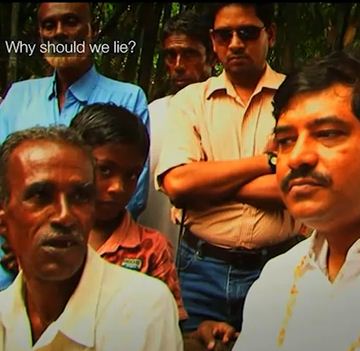Wycliffe Woes
The problems afflicting Wycliffe Bible Translators (WBT) are continuing to run over the concerns that basic words such as ‘Father’ and ‘Son’ have been removed in order not to offend Muslims.
 While the biblical principal of being ‘all things to all men’ is not an issue, an increasing number of believers – both in the West and in Asia – are concerned that missionary organisations are going too far in order to accommodate the cultural sensitivities of non-Christian groupings and other religions. While the biblical principal of being ‘all things to all men’ is not an issue, an increasing number of believers – both in the West and in Asia – are concerned that missionary organisations are going too far in order to accommodate the cultural sensitivities of non-Christian groupings and other religions.
Since earlier this year the well-known Wycliffe organisation has found itself at the centre of the debate and has stood accused of removing key words and concepts from the Bible so as not to cause offence and difficulty when working amongst the followers of Islam.
To those involved in outreach to Muslims and those of other faiths ‘Contextualisation’ and the ‘Insider Movement’ are familiar terms which, broadly speaking, relate to the need to make allowances for different cultures when engaged in evangelism.
The Contextualisation C5' model is formulated around the view that believers remain legally and socially within Islamic community. Aspects of Islam incompatible with the Bible are rejected or if possible, reinterpreted. Believers may remain active in the mosque. Unsaved Muslims may view C5 believers as deviant and may expel them from the Islamic community. If sufficient numbers permit, a C5 "Messianic mosque" may be established.
Giving credence to the concerns are the voices of indigenous Asian believers who judge that their efforts to propagate the Gospel amongst their own people are being undermined by Western missionaries.
In a media statement in February this year the point was made: “
Any Wycliffe Bible Translators UK members who are potentially involved ...do not work directly under the auspices of Wycliffe Bible Translators UK, but are seconded to a partner organisation, SIL International.”
Eddie Arthur, the Executive Director of WBT commented: “
“Bible translation decisions are often controversial and it is not uncommon for people who speak the same language to disagree strongly about the way a translation is carried out, as anyone who is familiar with the recent history of English translations will be aware. Our colleagues in SIL are taking a brave step in suspending the publication of Scripture in parts of the world where controversy has been stirred up and we look forward to the outcome of their period of global consultation.”
Since then, and as a further response, WBT has commissioned an independent review of its principles of translation to be undertaken by the World Evangelical Alliance. However the former is now being accused by one blogger of seeking to populate the review body with Wycliffe-friendly persons. The 'Cracks in the Crescent' blog suggests:
"This translation controversy is not going away soon, especially when there are serious ethical questions about how it is being conducted.
The Presbyterian Church of America (PCA) has joined the Assemblies of God in expressing serious reservations in its document about Wycliffe's translation philosophy. The PCA's General Assembly last Thursday approved resolutions that criticize Wycliffe Bible Translators while the Assemblies of God World Missions has threatened to sever ties if "Father" and "Son" are not translated literally.
Footnotes:
1. WBT Press Release
2. Wycliffe Bible Translators is an interdenominational organization mandated to making a translation of the Bible in every living language in the world, especially for cultures with little existing Christian influence. Wycliffe was founded in 1942. The organization, with branches in over 50 countries is named after John Wycliffe, who was responsible for the first complete English translation of the whole Bible.
3. Contextualisation: Attempts to communicate the Gospel in word and deed and to establish the church in ways that make sense to people within their local cultural context, presenting Christianity in such a way that it meets people's deepest needs and penetrates their worldview, thus allowing them to follow Christ and remain within their own culture. |